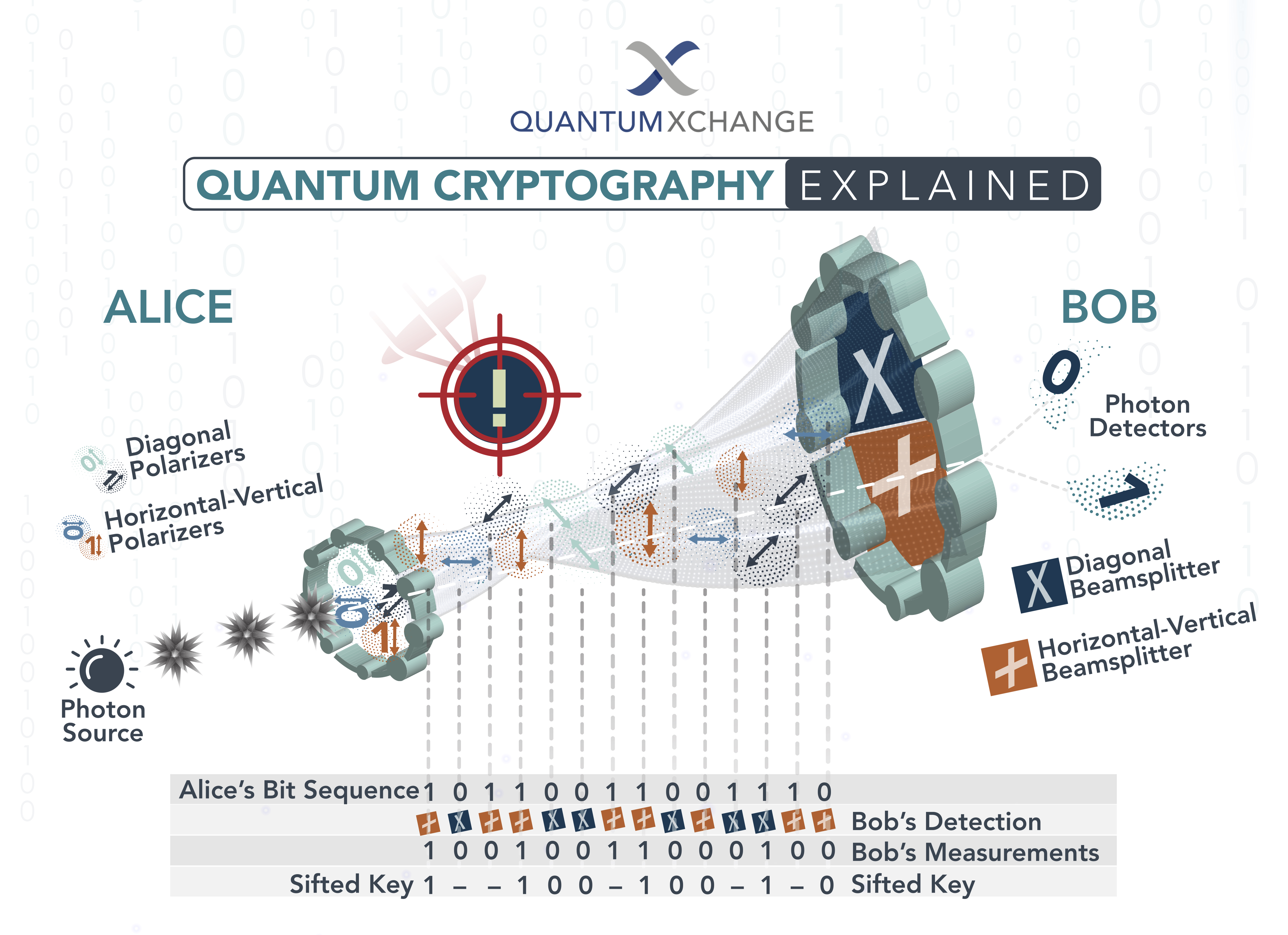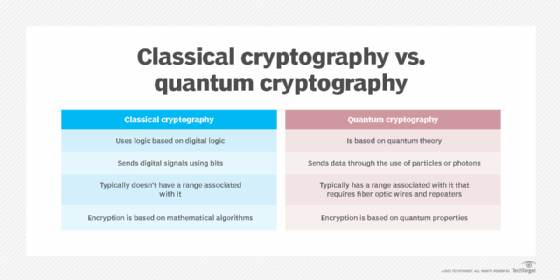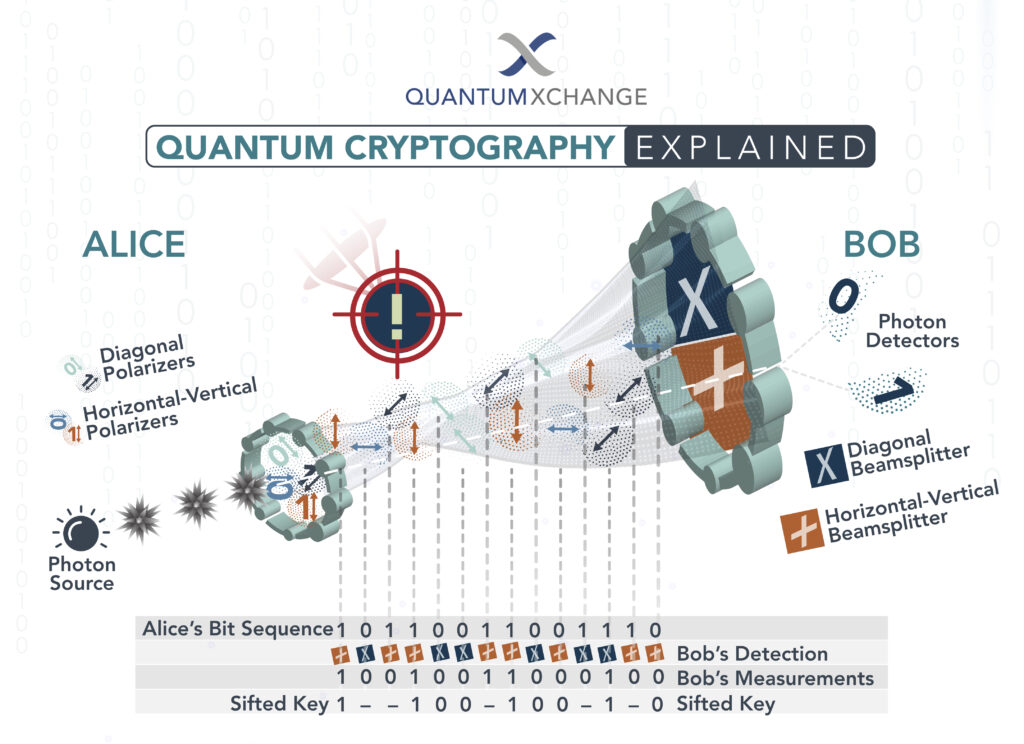Quantum cryptography has revolutionized the way we think about securing our data. With the growing number of cyber attacks and data breaches, traditional cryptography methods have become increasingly vulnerable. Quantum cryptography offers a unique solution to this problem by harnessing the power of quantum mechanics to create unbreakable codes.
One of the main reasons why we use quantum cryptography is because it offers an unprecedented level of security. Traditional cryptography relies on mathematical algorithms, which can be broken by brute force attacks or advanced computing techniques. In contrast, quantum cryptography uses the principles of quantum mechanics to create codes that are impossible to crack. This is because the act of measuring a quantum system changes its state, making it impossible for an eavesdropper to intercept the data without being detected. As a result, quantum cryptography is widely considered to be the most secure method of data encryption available today.
Quantum cryptography is used to provide secure communication between two parties by using the principles of quantum mechanics. It is a form of encryption that is virtually impossible to break due to the laws of physics. Quantum cryptography utilizes quantum bits, or qubits, which are particles of light, to send information between two points. This information is encrypted and can only be decrypted by the intended recipient, providing a secure communication channel.

What is Quantum Cryptography?
Quantum cryptography is the use of quantum-mechanical phenomena such as entanglement and superposition to perform cryptographic tasks. It is used to secure communication by using techniques such as quantum key distribution (QKD) to generate and securely exchange cryptographic keys. Quantum cryptography can also be used to detect eavesdropping on a communication channel.
Why We Use Quantum Cryptography?
Enhanced Security
One of the main reasons to use quantum cryptography is its enhanced security. Quantum cryptography is based on the laws of quantum mechanics, which means that it is virtually impossible to break. This makes it much more secure than traditional cryptographic algorithms, which can be broken with enough time and computing power.
Additionally, quantum cryptography is resistant to side-channel attacks, which are attacks that exploit weaknesses in the implementation of a cryptographic algorithm. Such attacks are often used to bypass traditional cryptographic systems, but they are ineffective against quantum cryptography.
Improved Privacy
Another benefit of quantum cryptography is improved privacy. Quantum cryptography is based on the principle of “no cloning”, which means that it is impossible to make copies of quantum information. This makes it impossible for an attacker to intercept and steal sensitive data.
Additionally, quantum cryptography is resistant to man-in-the-middle attacks, which are a type of attack where an attacker intercepts and modifies messages between two parties. This makes it much more difficult for an attacker to intercept and modify encrypted messages.
Improved Efficiency
Quantum cryptography can also be used to improve the efficiency of cryptographic systems. Quantum cryptography is based on the principle of “no signaling”, which means that it is impossible to send messages faster than the speed of light. This makes it much more efficient than traditional cryptographic systems, which often rely on slow and cumbersome algorithms.
Additionally, quantum cryptography is much more efficient than traditional cryptography when it comes to key distribution. Quantum cryptography can be used to securely generate and exchange cryptographic keys, which eliminates the need for slow and cumbersome key distribution protocols.
Frequently Asked Questions about Quantum Cryptography
Quantum Cryptography is a form of cryptography that uses the principles of quantum mechanics to secure data and communications. It is a powerful tool for encrypting data and providing secure communication links between two parties.
What is Quantum Cryptography?
Quantum Cryptography is a form of cryptography that uses the principles of quantum mechanics to secure data and communications. It is a powerful tool for encrypting data and providing secure communication links between two parties. Quantum cryptography works by encoding messages in quantum states, making them virtually impossible to decode without the proper key. This makes it one of the most secure forms of communication available. Quantum cryptography can be used to protect sensitive data, such as financial transactions, communication networks, and communications involving military and government agencies.
How Does Quantum Cryptography Work?
Quantum cryptography works by encoding messages in quantum states, which are made up of particles that exist in two or more states at once. The message is then encoded using a special type of algorithm and transmitted between two parties. The receiver then uses a special key to decode the message. This makes it virtually impossible for an eavesdropper to access the message, as it is encrypted in a way that cannot be decoded without the proper key.
What Are the Benefits of Quantum Cryptography?
The primary benefit of quantum cryptography is its security. Quantum cryptography is virtually unbreakable and is therefore the most secure form of communication available. It is also resistant to interception and tampering, making it ideal for transmitting sensitive information. Furthermore, quantum cryptography can be used to create a secure communication link between two parties, making it ideal for applications such as financial transactions and secure communication networks.
What Are the Limitations of Quantum Cryptography?
One of the main limitations of quantum cryptography is that it requires specialized equipment and expertise. It is also expensive and requires a large amount of energy to operate. Furthermore, quantum cryptography is limited by the speed of light, so it is not suitable for applications where data needs to be sent over long distances.
How Secure Is Quantum Cryptography?
Quantum cryptography is one of the most secure forms of communication available. It is virtually unbreakable and is resistant to interception and tampering. Furthermore, quantum cryptography is immune to brute-force attacks, meaning that even if an intruder were able to gain access to the key, they would still be unable to decode the message. For these reasons, quantum cryptography is the preferred method for secure data transmission.

In conclusion, the need for secure communication has become more paramount in today’s world, where information is a valuable asset. Quantum cryptography provides a solution to this problem by utilizing the principles of quantum mechanics to secure communication channels. It has been established that quantum cryptography is practically unbreakable, making it the most secure form of communication available.
Moreover, the use of quantum cryptography is not limited to governments and corporations alone; individuals can also use it to secure their personal communication channels. As technology continues to advance, the need for secure communication will only increase, and quantum cryptography will undoubtedly play a significant role in meeting this need. Therefore, it is essential that we continue to explore and develop this technology to ensure that our communication remains secure, now and in the future.

